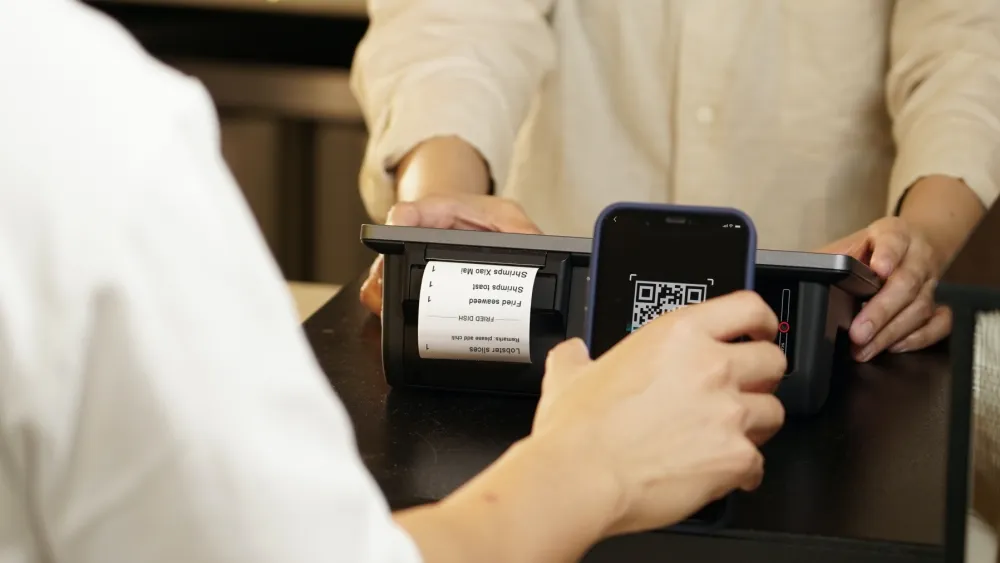Investment Made Easy - LINE Securities, a New Mobile Investment Service in Japan
By Eiichiro YanagawaThe Emerging Mobile Investment Service Launched in Japan
LINE Corporation launches the LINE Securities, a mobile investment service, August 20, 2019. Based on the joint venture agreement to form a business partnership to pursue financial businesses focused on the securities business, LINE Financial Corporation ("LINE Financial") and Nomura Holdings Inc. ("Nomura") established LINE Securities Preparatory Corporation on June 1, 2018.
The company leverages LINE's extensive userbase, leading technologies, and high usability/mobile-optimized interface and combines this with Nomura's expertise in the financial business to offer a new and comprehensive securities service that addresses latent needs related to building assets.
Under its corporate mission of "investment made easy," LINE Securities is a new mobile investment service available on the LINE platform. During the initial phase after the launch, users can trade stocks of 100 leading Japanese companies and 9 domestic exchange-traded funds (ETFs) in amounts as small as one share/unit, and starting at several hundred yen. LINE Securities also offers instant buy/trade until 9 pm on weekdays, tailored to meet the lifestyles of the current working population.
The Japanese wealth management market
According to the Celent Report, the diversity of financial assets holdings of individuals in Japan — with more than 50% of assets maintained in cash or deposits — pales in comparison with the West. Rooted in an understanding that the Japanese investor is typically conservative, seeks stability, and ultimately hails from an agricultural culture and tradition that are averse to risk, the Japanese government consistently hatches plans to improve the investment environment for individual investors and to enhance investment literacy. A prime example of this is the NISA initiative. The system was first introduced in January 2014, and further expanded in January 2016 (raising the maximum NISA investment ceiling to 1.2 million yen and establishing Junior NISA to facilitate asset transfer from older to younger generations and promote investment by the young). The number of accounts opened and purchase volume under these tax-exempt accounts continue to rise. From 2014 to 2015, the number of accounts increased by 30%, and purchase volume tripled.
At the same time, the scope of people using accounts has increased little. The ratio of NISA account holders in the “prime asset formation demographic” (aged 20 to 49) accounts for just about of 30% of accounts and a shade over around 20% of NISA investment activity. Also, NISA has been slow out of the gate, proving unable to attract a high ratio of inexperienced investors. Indeed, the proportion of NISA users without experience in traditional securities channels (defined as retail investors with no record of securities account used during the previous fiscal year) stayed low.
Against this background, the new company offers Five Breakthroughs to eliminate the following Three Pitfalls. Celent highly appreciates their bold strategy and we expect it to get results.
Three Pitfalls:
- Lack of knowledge (do not know how to select products, scared of investments, the common sentiment that investments are complicated and difficult).
- Lack of funds (investment requires a large sum of cash).
- Lack of flexibility (limited trading hours at stock exchanges).
5 breakthrough offers:
- Selection of 100 leading Japanese companies and 9 domestic ETFs.
- A variety of stocks available under JPY 3,000 (starting at several hundred yen).
- Instant buy/ trade until 9 pm on weekdays: Tailored to the lifestyle of the current working population, users can trade during lunchtime, after work hours, or any time until 9 pm on weekdays. The transaction price for stocks traded in amounts of one share is generally not determined at the time of filling an order. However, with LINE Securities, transactions are confirmed at the time of filling an order, allowing users to trade at published prices.
- Open accounts directly on the LINE app in as little as three minutes.
- The simple and intuitive trading interface on the LINE app-only six taps from the Wallet tab to complete orders.
Celent believes that, along with the improvement of product offerings, the improvement of customer experiences, especially the provision of secure and flexible self-service financial transaction services, is the top priority. We also believe that it is necessary to provide some investment products that will greatly stimulate users to make investments. We can expect that the former will be accomplished through collaboration with LINE and the latter with Nomura.
The future of retail brokers
In the areas that new business operators are not eager to enter, namely the sectors in which there is already a robust selection of conventional products and services, and under the current regulatory framework, the account and customer information fundamental to transactions upon which customer instructions are based can only be executed/accessed through traditional business operators’ authentication and APIs. This means that it is too early to count out incumbents, and their existence cannot be ignored.
However, at the same, the fight centering on the UI for customers—that is, the fight over mobile apps—will only continue to intensify. Customers can access all account information from mobile apps, selecting the most appealing product and service offerings from a wide range of options, and completing the transaction with one click. In today’s digital and hyper-competitive environment where customer experiences are shared nearly instantaneously through SNS (in particular, negative comments) the financial product services sector will presumably no longer be afforded special treatment or insulated from these digital realities.
When the financial services industry (FSI) shifts to a modular model, Celent believes that exactly what responsibilities financial institutions (FIs) will adopt could take the form of any number of scenarios.
- FIs become full-service providers: This differs from current practice in that modules could nimbly be replaced as needed and would secure greater strategic flexibility.
- FIs become service integrators: Premised on the existence of an established customer base, banks become product service providers with implementation that even goes as far as the financial infrastructure through loosely coupled, comprehensive solutions.
- FIs become open architecture providers: FIs become full-service providers and service hubs that loosely couple the product services of partner firms to their customer interface and financial infrastructure.
- FIs become specialists: FIs offer services that become a piece of the value chain, collaborating with many front-end and back-end business operators to create added value.
- FIs become white label providers: FIs provide the financial infrastructure capabilities of core banking services. They provide a very rare and safe global delivery model, backed by exclusive licenses to countries and regions.
SNS dedicated retail brokers are blessed with the possibility and opportunity to create new business formats in the financial services industry through co-creation with its parent SNS (LINE) and a securities giant (Nomura). The success of the new company will not only provide synergies to the parent companies but it will also offer them an opportunity to move to a new business paradigm.




















 Advertise
Advertise











